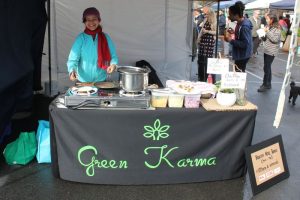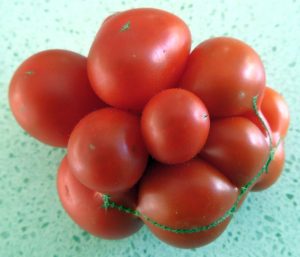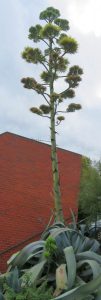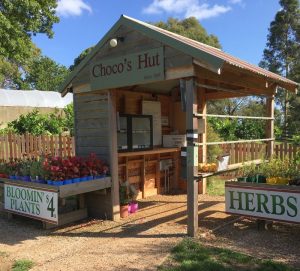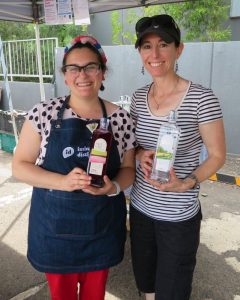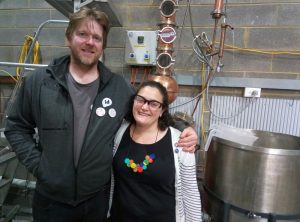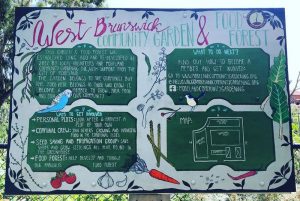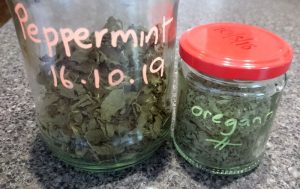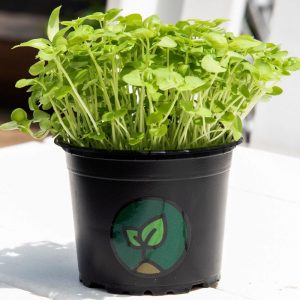 Microtown – a new seller of microgreens
Microtown – a new seller of microgreens
Microtown, who are based in Eltham, grow a wide range of microgreens all year round. All items are soil-grown using organic methods. They sell online, where you choose which products you would like to have delivered, how often, and how many. Delivery within 10km of their base in Eltham is free. Welcome Graeme!
Robin’s veggie tip of the month – why are my tomatoes still green?
There’s been a fair bit of consternation this season about when, or even if, tomatoes are going to ripen. The good news is that they probably will. The bad news is that it is not clear when.
Like all vegetables, the movement from seed to fruit in tomatoes is complex, involving many simultaneous processes. When plants are faced with weather extremes, some of these processes can be thrown out of balance. There’s an order that needs to happen: seed germinates, seedlings begin producing foliage, roots expand, flowers form, fruit forms, plant produces chemicals for colour, texture and flavour, and fruit ripens.
In ‘normal’ conditions, a tomato plant allots enough energy to each requirement to produce full size fruit in around 25 days and the first ripe fruit in around 50 days. However, we no longer have such conditions and the plants have to deal with numerous and sudden changes in air temperature. They also have to deal with the same beneath the surface, where constant changes in soil temperature disrupt the normal growth pattern.
Whether your tomatoes are ripening now may depend on when you happened to plant them. It seems that tomatoes planted in October are ripening more readily than those planted in November and later, even though there has been enough time for all to ripen in normal conditions. This may reflect less extreme weather earlier in the season. But if you are getting ripe tomatoes now, you may notice tough skins caused by high temperatures and inadequate water during December.
Rather than try to force your tomatoes to ripen, be patient. Don’t add fertiliser as this will cause the plant to put energy into growing foliage and roots rather than producing compounds for colour, texture and flavour. Mulch the roots and water regularly to attempt to keep the soil temperature below 26.5 degrees celsius. Shade on only the hottest days, and then remove the shade once the temperature drops, so as to not further slow the ripening process.
Read more of Robin Gale-Baker’s tips
Yarra Valley ECOSS
Newsletter reader Chelsea McNab has written in to tell us about Yarra Valley ECOSS, where she works. “ Yarra Valley ECOSS is a not-for-profit community organisation based on a 18 acre permaculture-designed farm at Wesburn, near Yarra Junction. Our aim is to demonstrate sustainable living solutions for the community of the Yarra Valley and beyond. We promote local food production, earth education and multicultural living. We organise lots of events, which you can find listed on our Facebook page. For example, Formidable Vegetable are playing on Saturday, 29th February and our Ecotopia Earth Festival is on Sunday, 29th March“. Thanks for the info, Chelsea!
Community gardening news
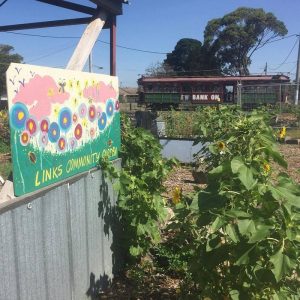 Links Community Garden Lalor has been given a tram, which has now arrived. They will be discussing its future at an event on Saturday, 29th February, 10am-1pm.
Links Community Garden Lalor has been given a tram, which has now arrived. They will be discussing its future at an event on Saturday, 29th February, 10am-1pm.
Want a job?
Garden co-ordinator for the community garden at Span Community House in Thornbury. 6 hours per week, $27.55 per hour. Closing date: 1st March. Apply by email to manager@spanhouse.org.
Listen to Morgan Koegel
The Hungry Gardener recently interviewed Morgan Koegel from 3000acres. Listen to the interview (25 minutes). Listen to more interviews by the Hungry Gardener.
What seeds to plant in March
Here is a list (see the planting guide for more detail):
BrassicasBroccoli |
Other cool season veggiesBroad beans |
Leafy greensLettuce |
RootsBeetroot |
OtherChives |
Compared with February, all the brassicas are now on the list, plus broad beans, rocket and spinach. The best months for planting brassicas are March and April. What I do is plant seeds in March so that, if they don’t germinate, I can either try again in April or cheat and buy some seedlings.
Proverb of the month
Not for all the tea in China. Meaning: not at any price. The derivation is simple: for at least the last 100 years, China has produced tea is large quantities (and currently accounts for around 40% of global production). It is one of those rare phrases which appears to have originated in Australia, although the original quote doesn’t exactly show the country in a good light: “Australia is not a hospitable country for anybody that has not got a white skin … By the laws of the country no dusky, tawny or yellow races are allowed to land … One is not even allowed to bring in a black servant, and when I applied to the authorities for permission to bring [one] with me, the reply was: ‘not for all the tea in China’.” (J.J. Mann’s Round the world in a motor car, 1914.)
Gardening quote of the month
“I plant a lot of trees. I am a great believer in planting things for future generations. I loathe the now culture where you just live for today.” by Penelope Keith.
Joke of the week
I thought I was drowning in Sprite, but it was only a Fanta sea.
New events – not cooking
Pruning workshop: Thursday, 27th February, 1.30-3.30pm; Coburg North.
What: This will be a hands on session, pruning the fruit trees at the community centre. They will also discuss the objectives and timing of pruning different trees and shrubs. Presenter: Cherie.
Cost: Gold coin donation.
Bookings: TryBooking.
Spoke and Spade garden tour: Saturday, 29th February, 10-11am; Heidelberg West.
What: Take a guided tour of Spoke & Spade, an urban farm growing fresh veggies for 40+ locals markets & cafes on three properties around Heidelberg. Discuss simple tips and principles from an urban farming approach which can help home gardening, including: seeds vs seedlings; preparing your soil; crop rotation; pollinators; water systems; and how close to space your crops.
Cost: $10.
Bookings: EventBrite.
Mushroom growing workshop: Saturday, 7th March, 10am-1pm; Central Ringwood Community Centre.
What: Led by Sena. The workshop will include topics such as: what mushrooms eat; cultivating; substrates; pasteurising; and propagation. You will also receive a home mushroom growing kit.
Cost: $50 (includes a home mushroom growing kit worth $30).
Bookings: by phone (9870 2602).
Span Community House – Autumn harvest feast: Wednesday, 11th March, 12.30-2.30pm; Span Community House, Thornbury.
What: Join them for a meal with produce picked fresh from their community garden. Enjoy a tour of the garden and a food swap table where growers can swap produce. All funds raised will go towards supporting neighbourhood houses in bushfire affected areas. Click here to read about the garden.
Cost: Gold coin donation.
Bookings: by phone (9480 1364) or email (info@spanhouse.org).
Planting cool season vegetables: Saturday, 14th March, 10.30am-midday; Whittlesea Community Garden.
What: Presenter: Maria from My Green Garden. Get organised for the cool season in your veggie patch. In this workshop, you will: see how to prepare the soil after the summer bounty; look at crop rotation for disease control and nutrient cycling; and discuss some common and more unusual veggies for growing over the cooler seasons. Take home some seeds.
Cost: free.
Bookings: by phone (9716 3361) or email (communitygarden@whittleseach.com.au).
Composting/soil improvement workshop and garden tour: Sunday, 15th March, 10am-midday; Eltham.
What: Stuart and Christine Rodda’s one acre garden is the result of 40 years of planting and soil improvement. The land was previously an orchard so the soil had already been worked to some extent, but the base soil of Eltham is a nutrient and organic poor so it needed a lot of inputs to make it productive across a variety of plants. They uses long lasting organic materials, including brown coal and charcoal. Reduced dependence on town water is achieved through deepening the soil by double digging, use of rainwater irrigation, and mulching. Home compost is made from coffee grounds and a variety of natural materials such as manures, wood shavings, and stone dust.
Cost: $10.
Bookings: EventBrite.
Kevin Heinze GROW Autumn fair and open day (Doncaster, Coburg): Saturday, 21st March, 9am-3pm; Kevin Heinze GROW.
What: This event will showcase their nursery, where a wide variety of perennials, succulents, herbs, fruit trees and vegetable seedlings will be available for purchase. The open day is also an opportunity for prospective participants, their families and others to visit the Kevin Heinze GROW calming space of their gardens, meet their team and learn more about the programs that they offer for people of all abilities. Kevin Heinze Grow is NDIS registered and they tailor their programs to the needs of individuals to help them meet their goals – whether these be social, emotional, vocational or recreational.
Cost: free.
Bookings: just turn up.
Serious backyard vegetable growing: Saturday, 28th March, 10am-midday; Heidelberg West.
What: Sim from Spoke & Spade grows food in multiple urban backyards producing several tonnes of fresh produce a year. He sells veggies through a local $30 veg box subscription, at farmers’ markets and to cafes. Topics to be discussed will include: crop selection, timing, yields and principles of inter-cropping; living soil; easy wins to protect from pests and disease; and appropriate garden tools and watering systems.
Cost: $30 ($15 per hour).
Bookings: EventBrite.
Native plant and book sale: Saturday, 18th April, 10am-4pm; Eltham.
What: Organised by Australian Plants Society – Yarra Yarra, there will be sales of native and indigenous plants plus books. The plant sellers will include: APS Yarra Yarra growers; La Trobe Wildlife Sanctuary nursery; Natural Plantscape Nursery; Sunvalley Plants Nursery; and Vaughan’s Australian Plants.
Cost: free.
Bookings: just turn up.
The art of watering: Sunday, 19th April, midday-1.30pm; Macleod Organic Community Garden.
What: What you will learn: how to determine the watering needs of vegetables, fruit trees, herbs and potted plants; techniques to help you avoid under and over watering; and practical strategies for conserving water. Presenters: Robin and Paul Gale-Baker from Macleod Organic Community Garden.
Cost: $38 ($26 per hour).
Bookings: WeTeachMe.
Food photography: Sunday, 19th April, 2-5pm; Eltham.
What: This class is for food bloggers, bakers or restaurant/cafe owners. It will focus on taking great images of food using your own, or easily obtainable, equipment. It will cover such aspects as: the right equipment; the best camera settings to make your food look good; choosing the right backgrounds; lighting; basic food styling; being creative; the perils of incorrect white balance; and using software to enhance colour and presentation.
Cost: $99 ($33 per hour).
Bookings: EventBrite.
Merri Merri Kids Club – after school care! (10 sessions): On 10 consecutive Tuesdays, from 21st April to 23rd June, each 4-5.30pm; Joe’s Market Garden, Coburg.
What: Child-led projects and explorations at Joe’s Market Garden and the Merri Creek. Activities vary with the seasons, incorporating seed saving, all things farming, herbal remedies, paint making, foraging skills, climate awareness, composting know-how, grub/insect skills, making natural pesticides, making insect hotels, climbing trees, building, bird watching, grub farming, singing, damper making, firing clay crafts in the coals, and fire-side story telling, etc. Mostly they have fun.
Cost: $212 for the 10 sessions ($14 per hour).
Bookings: EventBrite.
New events – cooking
Vegan cooking with Concetta La Marchesina: Saturday, 29th February, 11am-12.30pm; Macleod Organic Community Garden.
What: Learn how to prepare nutritious, healthy and balanced vegan meals with naturopath Conchetta La Marchesina. Click here to read about the garden.
Cost: $25 ($17 per hour).
Bookings: TryBooking.
Sourdough workshop – yeasted breads: Thursday, 5th March, 7-9pm; Coburg.
What: This session is an easy introduction to making bread at home. It will look at making basic yeasted breads, including white, wholemeal and multigrain sandwich loaves. It will include a demonstration, samples to taste, and notes to take home. It is intended for the home cook using a domestic oven.
Cost: $20 ($10 per hour) ($10 concession).
Bookings: TryBooking.
Preserve my harvest: Wednesday, 18th March, 6-8pm; Preston.
What: Qualified chefs will teach you how to preserve, pickle and or ferment your fresh produce. You will learn how to create a range of pickles, jams, sauces, relishes or ferments. They will provide the jars, labels and preserving ingredients needed. If you have any, bring some fresh produce from your garden.
Cost:$35 ($18 per hour) .
Bookings: their website.
Sourdough workshop – sourdough bread: Thursday, 19th March, 7-9pm; Coburg.
What: This session will talk about making and maintaining a starter. It will include a demonstration, samples to taste, and notes to take home. It is intended for the home cook using a domestic oven.
Cost: $20 ($10 per hour) ($10 concession).
Bookings: TryBooking.
Ice cream in your thermomix: Tuesday, 24th March, 7.30-9pm; Kilsyth.
What: Learn the tips and tricks to making ice cream in your thermomix. Made in less than 2 minutes. As well as normal ice cream, there will be kale ice cream. They will also discuss diary alternatives (such as coconut or nut milk) and sugar alternatives. Of course you get to eat each ice cream as we present it.
Cost: $26 ($17 per hour).
Bookings: EventBrite.
Kids cooking club – pasta salad: Tuesday, 21st April, 4-5pm; Thomastown Library.
What: To celebrate their new kitchen garden, they will be teaching kids how to make pasta salad and salad dressing. Kids must be aged 7+ and parents must be present.
Cost: free.
Summary of upcoming events – not cooking
Over the next week
- Pruning workshop: Thursday, 27th February, 1.30-3.30pm; Coburg North.
- Connecting Moreland Community Gardens: Thursday, 27th February, 6.30-8pm; Pentridge Community Garden, Coburg.
- The art of espalier: Thursday, 27th February, 6.30-9pm; Bulleen Art and Garden.
- Double Delicious: Thursday, 27th February, 7-8.45pm; Abbotsford Convent.
- Double Delicious: Friday, 28th February, 5.30-7.15pm; Abbotsford Convent.
- Behind the bar – Rob Dolan Wines: Friday, 28th February, 5.30-7.30pm; Nillumbik Cellars, Diamond Creek.
- Moreland north community food hub co-design workshop: Friday, 28th February, 6-8pm; Fawkner.
- Double Delicious: Friday, 28th February, 8.30-10.15pm; Abbotsford Convent.
- Spoke and Spade garden tour: Saturday, 29th February, 10-11am; Heidelberg West.
- Moreland north community food hub co-design workshop: Saturday, 29th February, 1-3pm; Fawkner.
- Fruit tree pruning: Saturday, 29th February, 2-3pm; Watsonia Library.
- Just Eat It (film): Saturday, 29th February, 2-4pm; Hawthorn.
- The Great Tomato Taste Off: Saturday, 29th February, 3-5pm; Lower Plenty.
- Double Delicious: Saturday, 29th February, 5.30-7.15pm; Abbotsford Convent.
- Double Delicious: Saturday, 29th February, 8.30-10.15pm; Abbotsford Convent.
- Really Really Free Market Preston: Sunday, 1st March, 10am-2pm; Preston.
- Advanced composting: Sunday, 1st March, 1-4pm; Alphington Food Hub.
- Home Harvest Picnic 2020: Sunday, 1st March, 3.30-7pm; Edendale.
- Double Delicious: Sunday, 1st March, 5.30-7.15pm; Abbotsford Convent.
- Compost for beginners: Monday, 2nd March, 6.30-7.30pm; Thornbury.
- Community growing spaces workshop (City of Yarra): Tuesday, 3rd March, 6.30-8pm; Richmond.
Over the next month
- The herbal apprentice (7 sessions): 7 consecutive Thursdays from 5th March to 16th April, each 10am-3.30pm; CERES, Brunswick East.
- Complete urban farmer (14 sessions): the first session will be on Saturday, 7th March, 9am-3pm; CERES, Brunswick East.
- Mushroom growing workshop: Saturday, 7th March, 10am-1pm; Central Ringwood Community Centre.
- Bee hive tour: Saturday, 7th March, 10.30am-12.30pm; Rivers of Yarrambat.
- Wild food and medicine walk: Sunday, 8th March, 10am-midday; Merri Creek Trail, Northcote.
- Heritage apple tasting: Monday, 9th March, 5-7pm; Petty’s Orchard, Templestowe.
- Intro to permaculture (3 sessions): Tuesdays 10th, 17th and 24th March, each 10am-3pm; Park Orchards.
- Span Community House – Autumn harvest feast: Wednesday, 11th March, 12.30-2.30pm; Span Community House, Thornbury.
- Penny Woodward on growing garlic: Thursday, 12th March, 10am-midday; Camberwell.
- Produce in pots: Thursday, 12th March, 6.30-9pm; Bulleen Art and Garden.
- Bee a pollinator! Native bee hotel workshop for families.: Saturday, 14th March, 10-11am; Preston.
- Planting cool season vegetables: Saturday, 14th March, 10.30am-midday; Whittlesea Community Garden.
- Grafting and grafting aerial layering propagation: Saturday, 14th March, 11.15am-12.15pm; Northcote.
- The Herb and Chilli Festival: Saturday, 14th March and Sunday, 15th March, both 10am-5pm; Wandin North.
- Open Garden at Reservoir Views Primary School: Sunday, 15th March, 10-11am; Reservoir.
- Composting/soil improvement workshop and garden tour: Sunday, 15th March, 10am-midday; Eltham.
- Guided tour of Robbie’s aquaponics garden: Sunday, 15th March, 12.45-1.45pm; Thornbury.
- Backyard beekeeping basics: Sunday, 15th March, 1.30-3.30pm; CERES, Brunswick East.
- Guided tour of Lena’s courtyard garden: Sunday, 15th March, 2-3pm; Thornbury.
- Introduction to permaculture (two sessions): Sunday, 15th March and Sunday, 22nd March, both 10am-4pm; Edendale.
- Beeswax wraps: Thursday, 19th March, 7-9pm; Park Orchards Community House.
- Beeswax wraps: Friday, 20th March, 6-8pm; Surrey Hills Neighbourhood Centre.
- Kevin Heinze GROW Autumn fair and open day: Saturday, 21st March, 9am-3pm; Kevin Heinze GROW, Doncaster.
- Kevin Heinze GROW Autumn fair and open day: Saturday, 21st March, 9am-3pm; Kevin Heinze GROW, Coburg.
- Beginning beekeeping course: Saturday, 21st March, 9.30am-4pm; Edendale.
- Guided tour of Damian’s permaculture garden: Saturday, 21st March, 10-11am; Reservoir.
- Guided tour of Monique’s rental abundance garden: Saturday, 21st March, 11.15am-12.15pm; Northcote.
- Open Garden at Sylvester Hive Community Garden: Saturday, 21st March, 12.30-2pm; Sylvester Hive Community Garden, Preston.
- Guided tour of Maya’s fruitful garden: Saturday, 21st March, 1.30-2.30pm; Preston.
- Maya’s pruning workshop: Saturday, 21st March, 2.45-3.45pm; Preston.
- Set up and maintain a worm farm: Saturday, 21st March, 3-4pm; Edendale.
- Healthy productive compost and worms: Sunday, 22nd March, 9.30am-12.30pm; Bulleen Art and Garden.
- Citrus care workshop: Sunday 22nd March, 10am-midday; Preston.
- Mushroom cultivation workshop: Sunday, 22nd March, 10am-1pm; Park Orchards Community House.
- Preserving fruit workshop: Sunday, 22nd March, 10am-1pm; Fitzroy.
- Open Farm Day: Sunday 22nd March, 10am-4pm; Nillumbik.
- Productive gardening with kids workshop at Poppy’s Patch: Sunday, 22nd March, 11.15am-12.15pm; Reservoir.
- Incredible Edible Eltham – Winter vegetable planting: Sunday, 22nd March, 2-4pm; Old Eltham Courthouse.
- DIY composting and worm farms: Sunday, 22nd March, 2-4pm; Preston.
- Wine appreciation: Monday, 23rd March, 7-9pm; Box Hill.
- Nutrition gardening – growing nutrient dense food in any space: Wednesday, 25th March, 10am-midday; Edendale.
Summary of upcoming events – cooking
Over the next week
- Chinese dumpling workshop: Wednesday, 26th February, 10.30am-12.30pm; Canterbury Neighbourhood Centre.
- Ladies day in the kitchen: Thursday, 27th February, 9.30am-midday; Yarra Glen.
- Demystifying bread: Thursday, 27th February, 6.30-9pm; Park Orchards Community House.
- Asian cooking workshop: Thursday, 27th February, 7-8.30pm; Mill Park Library.
- Nonna & Mum’s homestyle cooking class: Thursday, 27th February, 7.30-10.30pm; Thornbury.
- Sausage making workshop: Friday, 28th February, 5.30-7.30pm; Kitchen Warehouse, Preston.
- Cook Indian by the creek: Friday, 28th February, 6.30-8pm; Diamond Creek.
- Become a junior chocolatier: Saturday, 29th February, 9-9.45am; Yarra Valley Chocolaterie, Yarra Glen.
- Sourdough bread baking: Saturday, 29th February, 9am-5pm; CERES, Brunswick East.
- Mozzarella and ricotta cheesemaking workshop: Saturday, 29th February, 9-11.30am; Bee Sustainable, Brunswick East.
- Persian cooking: Saturday, 29th February, 10am-12.30pm; Lower Templestowe.
- Kombucha, jun and wild fermented lemon soda workshop: Saturday, 29th February, 10.30am-midday; Surrey Hills Neighbourhood Centre.
- Vegan cooking with Concetta La Marchesina: Saturday, 29th February, 11am-12.30pm; Macleod Organic Community Garden.
- Chocolate discovery class: Saturday, 29th February, 11.30am-12.30pm; Yarra Valley Chocolaterie, Yarra Glen.
- Wild fermentation class (pickling and sauerkraut): Saturday, 29th February, midday-2.30pm; Dixons Creek.
- Sauerkraut and other fermented veggies: Saturday, 29th February, 12.30-2pm; Surrey Hills Neighbourhood Centre.
- Chocolate discovery class: Saturday, 29th February, 1-2pm; Yarra Valley Chocolaterie, Yarra Glen.
- Persian cooking: Sunday, 1st March, 10am-1.30pm; Park Orchards Community House.
- Triple cream brie cheese: Sunday, 1st March, 10am-4pm; CERES, Brunswick East.
- Easy vegan in your Thermomix: Tuesday, 3rd March, 7.30-9.30pm; Chirnside Park.
Over the next month
- Sourdough workshop – yeasted breads: Thursday, 5th March, 7-9pm; Coburg.
- Healthy Asian cooking workshop (Japanese food): Thursday, 5th March, 7-9pm; Mill Park Library.
- Cook Indian by the creek: Friday, 6th March, 6.30-8pm; Diamond Creek.
- Preserving: Saturday, 7th March, 9am-1pm; Kinglake.
- No Waste Cook Club: Saturday, 7th March, 10am-midday; Fitzroy North.
- Truffle workshop at Ratio Cocoa Roasters: Saturday, 7th March, 10.30am-midday; Brunswick.
- Chocolate workshop at Ratio Cocoa Roasters: Saturday, 7th March, 1-4pm; Brunswick.
- Creative Chinese vegetarian cooking: Sunday, 8th March, 1.30-3pm; Watsonia Library.
- The basics of pickle and preserving: Tuesday, 10th March, 7-8.30pm; Hawthorn Community House.
- Cookie making class for kids: Thursday, 12th March, 4-5pm; Kew.
- Sourdough bread: Thursday, 12th March, 6.30-9pm; Park Orchards Community House.
- Sausage making workshop: Friday, 13th March, 5.30-7.30pm; Kitchen Warehouse, Box Hill South.
- Sourdough for beginners: Saturday, 14th March, 10-11.30am; Kitchen Warehouse, Preston.
- Bread making basics: Saturday, 14th March, 10am-12.30pm; Lower Templestowe.
- Growing and cooking with bushfoods: Saturday, 14th March, 10am-3pm; CERES, Brunswick East.
- Food for mind and gut: Saturday, 14th March, 10am-3pm; CERES, Brunswick East.
- A Tuscan table – gnocchi making class: Saturday, 14th March, 11am-1pm; Kew.
- Seasonal ferments – kimchi + kombucha: Saturday, 14th March, 2-4pm; Bee Sustainable, Brunswick East.
- Feta, halloumi and ricotta cheesemaking workshop: Sunday, 15th March, midday-3.30pm; Bee Sustainable, Brunswick East.
- Vietnamese cooking, music and zumba: Monday, 16th March, 10.30am-midday; Thomastown Library.
- Easter biscuits workshop: Monday, 16th March, 11am-midday; Watsonia Library.
- Kids cooking club – mini pizza: Tuesday, 17th March, 4-5pm; Thomastown Library.
- Family friendly meals in your thermomix: Tuesday, 17th March, 7.30-9.30pm; Chirnside Park.
- Preserve my harvest: Wednesday, 18th March, 6-8pm; Preston.
- Cooking for one: Thursday, 19th March, 10.30-11.30am; Coburg Library.
- Italian Napoli sauce and fettucine demo: Thursday, 19th March, 10.30am-midday; Thomastown Library.
- Sourdough workshop – sourdough bread: Thursday, 19th March, 7-9pm; Coburg.
- Blokes in the kitchen: Friday, 20th March, 8am-midday; Surrey Hills Neighbourhood Centre.
- Cook Indian by the creek: Friday, 20th March, 6.30-8pm; Diamond Creek.
- Become a junior chocolatier: Saturday, 21st March, 9-9.45am; Yarra Valley Chocolaterie, Yarra Glen.
- Sourdough bread making: Saturday, 21st March, 10am-12.30pm; Lower Templestowe.
- Vegan cheese making: Saturday, 21st March, 10am-4pm; CERES, Brunswick East.
- Vegetarian Vietnamese: Saturday, 21st March, 10.30am-3pm; Panton Hill.
- Chocolate discovery class: Saturday, 21st March, 11.30am-12.30pm; Yarra Valley Chocolaterie, Yarra Glen.
- Chocolate discovery class: Saturday, 21st March, 1-2pm; Yarra Valley Chocolaterie, Yarra Glen.
- Mozzarella and ricotta cheesemaking workshop: Sunday, 22nd March, midday-2.30pm; Bee Sustainable, Brunswick East.
- Easter egg decorating demonstration for adults: Monday, 23rd March, 10.30-11.30am; Thomastown Library.
- The Hellenic food odyssey: Tuesday, 24th March, 7-8pm; Northcote Library.
- Ice cream in your thermomix: Tuesday, 24th March, 7.30-9pm; Kilsyth.
View the complete calendar of upcoming events.
Read some help on how to view the calendar selectively. For example, search for events in a given suburb or set of suburbs. Or search for events of a given type (such as markets).

